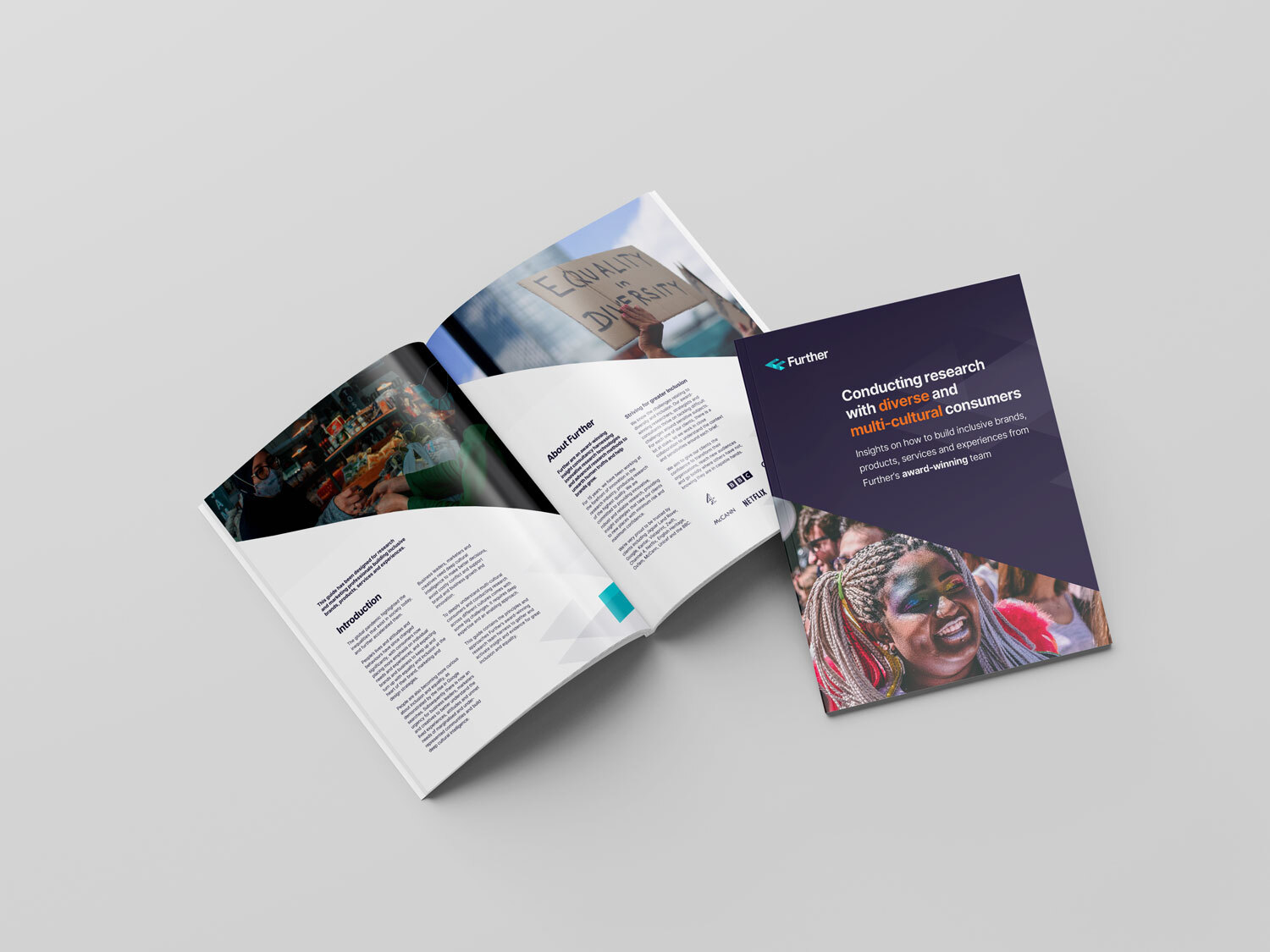In 2019, it can feel like every brand with a budget is running a progressive campaign to tap the equality-hungry hearts of millennials and Gen Z. Empathic, experiential, and (of course) authentic engagement is the conscious marketing of the future that audiences are demanding right now. But in the rush to avoid being left behind, not all progressive campaigns are created equal.
When it’s done right, even the most industry-hardened of us can’t resist the cultural unity and emotional presence of an on-message progressive campaign. The success of these campaigns is counted in social shares, as individuals seek to align themselves with a cause close to their heart - and, by association, the brand footing the campaign bill.
As for brands that try the tactic and get it all wrong – well, it makes audiences angry. Angry enough to converge en masse on all brand channels, staging virtual protests that would put grey hairs on your social media manager. Or, as H&M managed to provoke with a racially insensitive ‘coolest monkey in the jungle’ hoodie design - physical riots that saw stores in South Africa protested and shut down. Even if the backlash stays contained to virtual channels, the Internet will immortalise your misguided, offensive brand strategy forever. In 2015 Starbucks made a glaring misstep with their ‘RaceTogether’ campaign - a startlingly poor attempt to take part in the conversation around race in America. The #racetogether hashtag was intended to generate thoughtful conversations between consumers and baristas. Instead, it generated a lot of biting Twitter commentary on the insensitivity and impracticality of the entire idea. Word is the campaign came straight from CEO Howard Schultz, and was rolled out via very little market research. If they’d taken the public’s temperature - they might have avoided over 2.5million Twitter impressions mostly resembling this:
.webp?width=635&name=Starbucks_1%20(1).webp)
.webp?width=635&name=Starbucks_2%20(1).webp)
.webp?width=635&name=Starbucks_3%20(1).webp)
The customer insight our research has cultivated over the last few years points towards an inexorable shift that brands are just beginning to understand. We are living in the age of the demanding, hyper-informed consumer – and consumer-directed change is here to stay. People are STILL talking about that Starbucks faux pas four years later.
In our cultural context - not all of us can be innovators, or even early adopters. When your consumers are demanding to know your brand values (and threaten to desert you if you don’t have any), brands must avoid the temptation of looking for the latest ‘hot cause’ to wave a flag for. These powerful emerging consumer groups have an understanding of marketing mechanisms and genuine passion for social change. They will sniff out your inauthenticity, and detect your attempts to co-opt and cash out. With social media, they have a platform to not only critique your efforts very publicly, but they can also create a brand backlash that will take years to neutralise.
Worse still, if you’re seen to be co-opting a righteous message and doing it poorly, your brand stands to actually undermine the progressive cause you were hoping to use as emotional collateral.
Even the most insightful and effective progressive campaigns have to stand up against accusations of jumping on the bandwagon. For example, Gillette's foray into toxic masculinity stirred murmurings of co-opting the ‘new masculinity’ zeitgeist for cynical commercial gains and divided the public. However, their well-executed ad felt pitch perfect and rightfully provocative, it felt informed by a keen ear and eye on audience insight. The moments of connection created and thoughtful conversations generated are sure to outlast the backlash, validating the campaign in the eyes of these key new audiences. In response, we asked on our blog 'Is suicide the best a man can get'.
If you want to connect with consumers through their values, there’s plenty that can be done from a research perspective to ensure your campaign resonates with the world at large, and not just with your creative department. Here's some starter points.
1) Progressive messaging: try to mean it
Sincerity. Authenticity. Empathy. Connection. These emotional states can feel like so many ad land buzzwords, but the industry is seeing a shift towards company cultures and structures that prioritise these values, and work to embody them. So what does it take to move the overall gut reaction in your audience from unsold sceptics to connected, inspired supporters?
Iceland, a UK frozen food store, produced a TV advert that tapped into growing consumer demand for environmental campaigns. It was then banned by Clearcast for breaching political advertising. With 725,000 signatures against the ban, and 30 million views on social media - their human insight was spot on, and the brand strategy paid off. James Turner (former head of Greenpeace comms) said the decision to ban the TV spot was “like banning Apple’s seminal 1984 advert because George Orwell was a bit of a lefty.” Iceland came out of this controversy as innovators, thanks to their diligent reading of consumer attitudes. By landing on the right side of provocative (and an unpopular broadcasting ban), they made a major cultural contribution to the rising pitch of climate change conversations.
Strong human insight can help your team identify the real world causes your audience wants to talk about. Strong company culture can help you determine where these overlap the most authentically with your brand, creating opportunities for bold strategy.
2) Back it up with real, sustainable culture change
Audiences now expect to see a wider, ethical purpose coming from the brands they spend money with. When you consider the immense psychological pressures audiences are under due to the very real environmental problems we are pressed to find solutions for – perhaps it’s small wonder that consumers expect brands to be doing more, to be offering something positive and lasting in exchange for their profits.
Social conscience isn’t just a KPI - the best progressive messaging is reflected by a real culture change within the organisation. Back to the Iceland ad – their repurposing of a highly emotive Greenpeace animation about deforestation and destruction of orangutan habitats would have been in the crosshairs if they hadn’t backed it up with “a Christmas without palm oil”. If you want to align your brand with a social cause, seek the opportunities within your business to embody the message, and make it real and visible.
3) Be empathic – know your audience
According to Alan B. Hart, host of Marketing Today's podcast "brands that demonstrate true empathy in the experiences they deliver will win. These experiences build powerful memories that can disrupt categories". Something that Pepsi should have realised when their Kendall Jenner advert infamously attempted to co-opt the cultural surge around the Black Lives Matter movement, and failed horrifically. Audiences were relentless in pointing out the many aspects of the ad that felt tone deaf, inauthentic, obvious, and offensive in its misappropriation. Minority audiences are unfortunately all too accustomed to being misrepresented by advertising – the response saw the ad pulled and the brand humiliated. Half-hearted attempts to co-opt protest culture were never going to play out well. Someone on the campaign team should have realised that disaster was coming – there’s no excuse for this kind of human insight deficit in today’s marketing arena. An emphasis on better, more empathic market research could have helped the soda giant avoid such an embarrassing (and now eternal) messaging mistake.
In-depth and insightful research is the difference between your campaign amplifying a cultural conversation in a meaningful, socially productive, everlasting way, and a messaging misstep that sees your brand blundering into an incendiary social landscape you just weren’t ready for.
Conclusions
Consumers want to see the world they dream of represented in their commercial landscape – so brands have got to do better than liberal lip service and progressive play-acting. The rapid pace of consumer-centric change we saw in 2018 is accelerating in 2019. Expect to see more social conscience concerns going viral, like the cultural emphasis on going ‘plastic-free’ that swept business small and large last year. The force of social media turned this from a consumer trend to a commercial imperative for many service business – a perfect example of the way vocal, empowered consumer groups are now directing the rules of play.
Aligning your brand with progressive movements through ethical campaigns is one of the most effective ways to modernise and connect with the most influential audiences of today, but it comes with a certain amount of risk. Make sure you’re conducting good research, and make sure you understand the conversation around your cause. Before you commit to a progressive campaign strategy - be ready to take part in brand-led social evolution. This is about genuinely connecting with your audience on something important - not just hopping on the brand bandwagon and hoping for the best.
What does your brand REALLY stand for?





















%20(1).webp)

.webp)

%20(1).webp)

.webp)

.webp)
.webp)
.webp)
.webp)

.webp)
.webp)
.webp)
.webp)